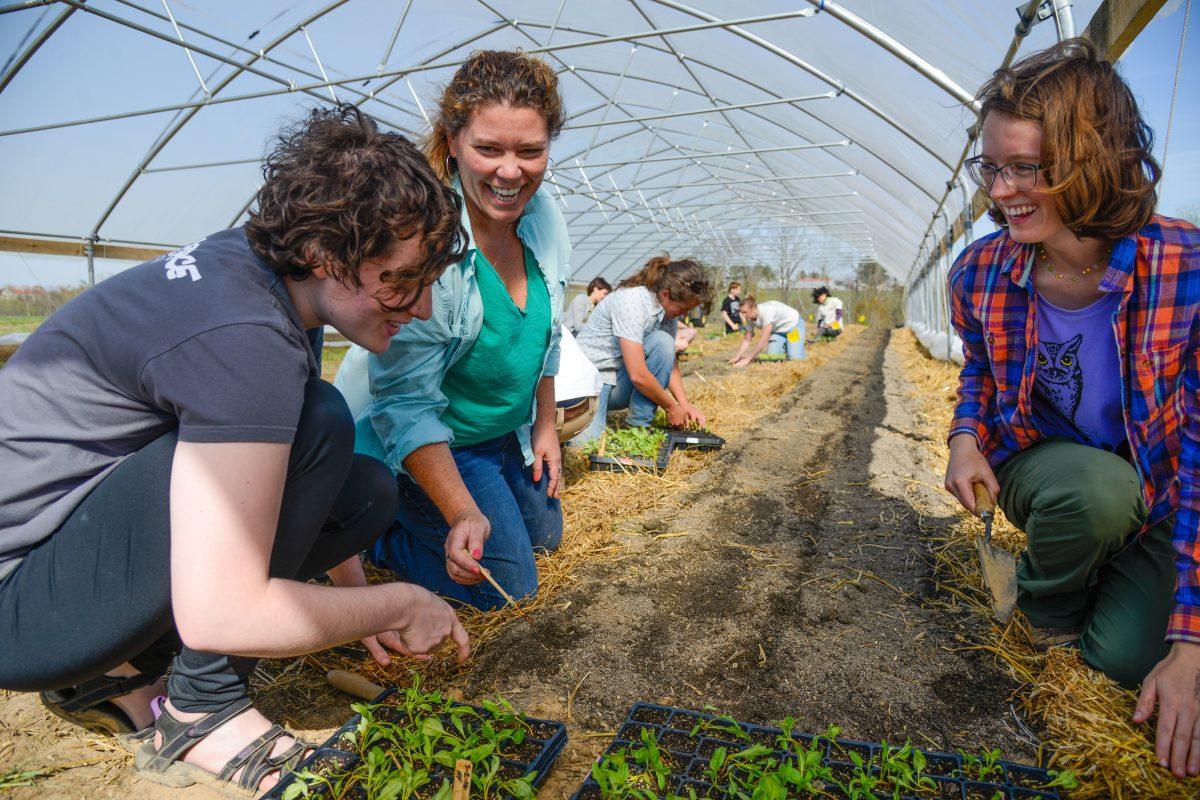NC State’s Agroecology Education Farm is the primary provider of fresh produce for students’ plates in the dining halls year-round. Now, due to a partnership with a research and extension program, the Agroecology Education Farm has expanded and reached into the supply of local, retail grocery stores.
According to Alison Reeves, the Agroecology Education Farm manager, the farm has been working with the Center for Environmental Farming Systems (CEFS) since 2013. This program is a partnership between NC State, North Carolina A&T State University and the North Carolina Department of Agriculture and Consumer Services.
Within the CEFS program, a project that is funded by the United States Department of Agriculture (USDA) called “NC Growing Together” focuses on the economic development of small and mid-sized growers, like NC State’s Agroecology Education Farm.
“NC Growing Together is a way to get local food in the grocery stores and the larger food chain supply,” said Reeves. “We actually work with the NC State business school as well to learn more and get assistance on supply chain challenges, which is very beneficial for the program.”
Michelle Schroeder-Moreno, the director of Agroecology Education Farm, said that through the program, the farm partners and sells some of their produce in Lowes Foods grocery store, a North Carolina-based company.
According to CEFS, Lowes Foods often sold and purchased locally grown produce for their stores before they partnered with the program. However, since working with CEFS, Lowes Foods has added over 30 farms and buys local produce from each.
Schroeder-Moreno explained the importance of NC Growing Together and the partnership with Lowes Foods.
“The way that the current system is set up for grocery stores is that they need a large volumes of produce, so they tend to contract with farmers who can provide not just a quantity, but a more standardized size and variety of produce they can fill their shelves with,” Schroeder-Moreno said. “This system has really left out the smaller and mid-size grower. However, we see that consumers want more local and the growth of farmers’ markets, giving us the ability to share our produce outside of NC State.”
Schroeder-Moreno also added that NC Growing Together is very important to the development and the future of the Agroecology Education Farm.
“This project is helping farmers, like us, understand what supply chain and markets need,” Schroeder-Moreno said. “For example, there are food standards that are different in grocery stores than on the farm, so we rely on our partner to provide with us that training.”
On the other hand, NC Growing Together helps retailers and big chains understand the reality of smaller farms, according to Schroeder-Moreno.
Richard McKellogg, Lowes Foods produce director, stated via the CEFS website, said that he has seen an impact smaller producers, such as the Agroecology Education Farm at NC State, on the community outside of the university by showing support through providing local produce.
In addition to Lowes Foods, the farm also partners with Fort Bragg, which according to Schroeder-Moreno, comes with many challenges and regulations.
“Although challenging, Fort Bragg is a very important partner, because they see feeding the troops and their food supply as homeland security,” Schroeder-Moreno said. “They also are taking the step in conservation of [their] agricultural land.”
By partnering with NC Growing Together, NC State students have more opportunities in the realm of sustainable agriculture and the local food supply chain through multiple apprenticeships offered by CEFS, according to Reeves.
Students who are interested in learning more about the Agroecology Education Farm and apprenticeship opportunities can visit the farm website.








